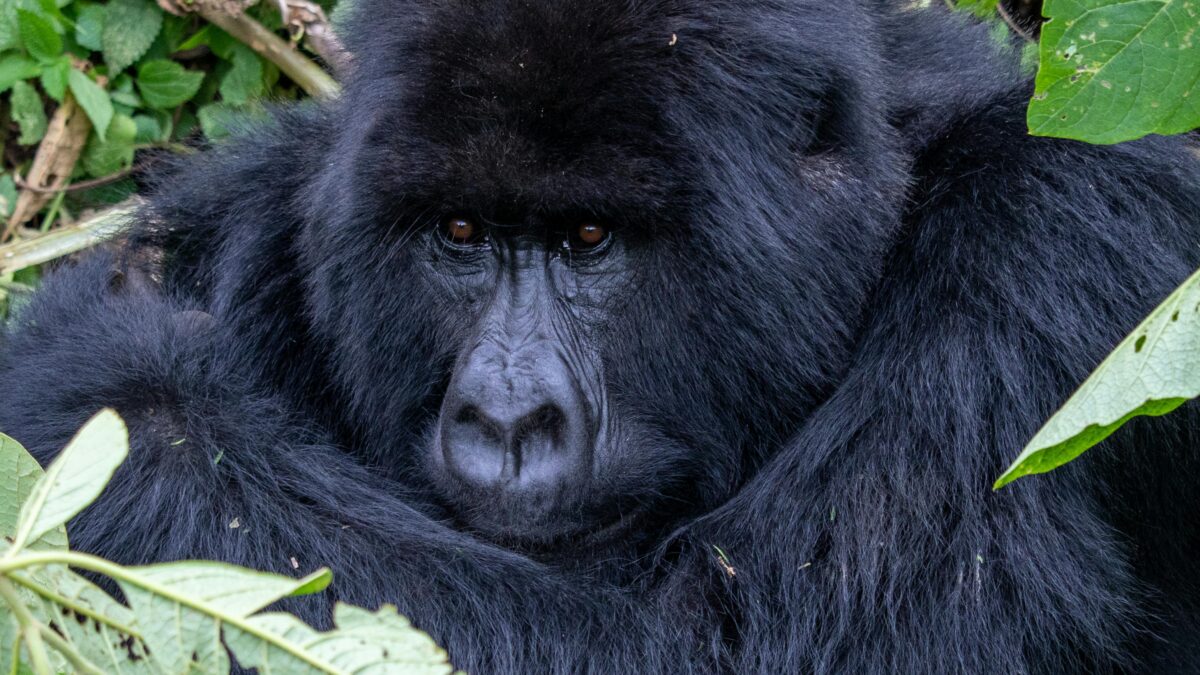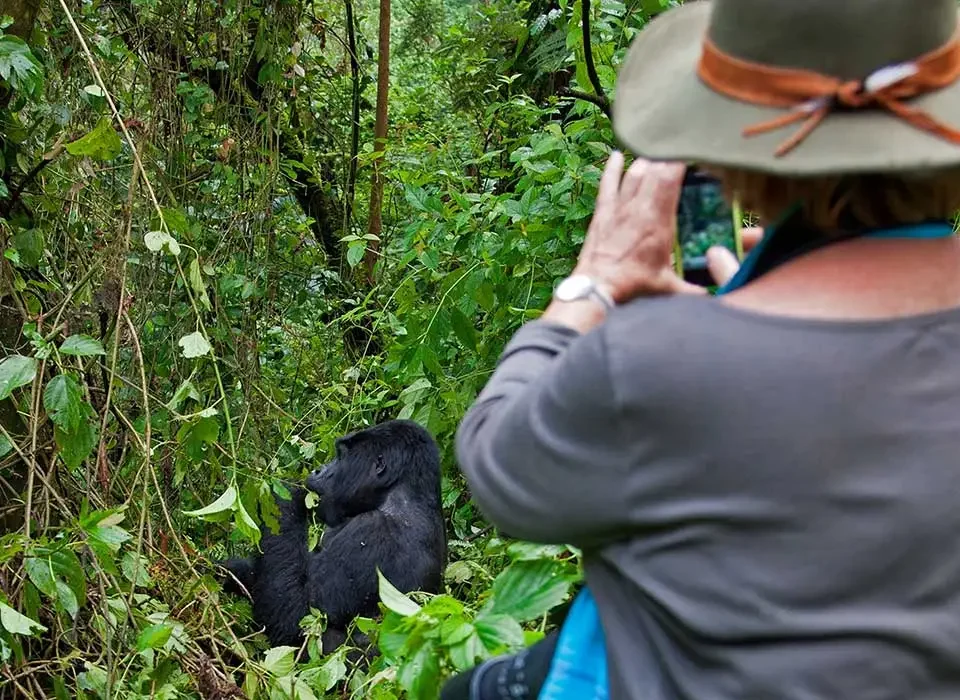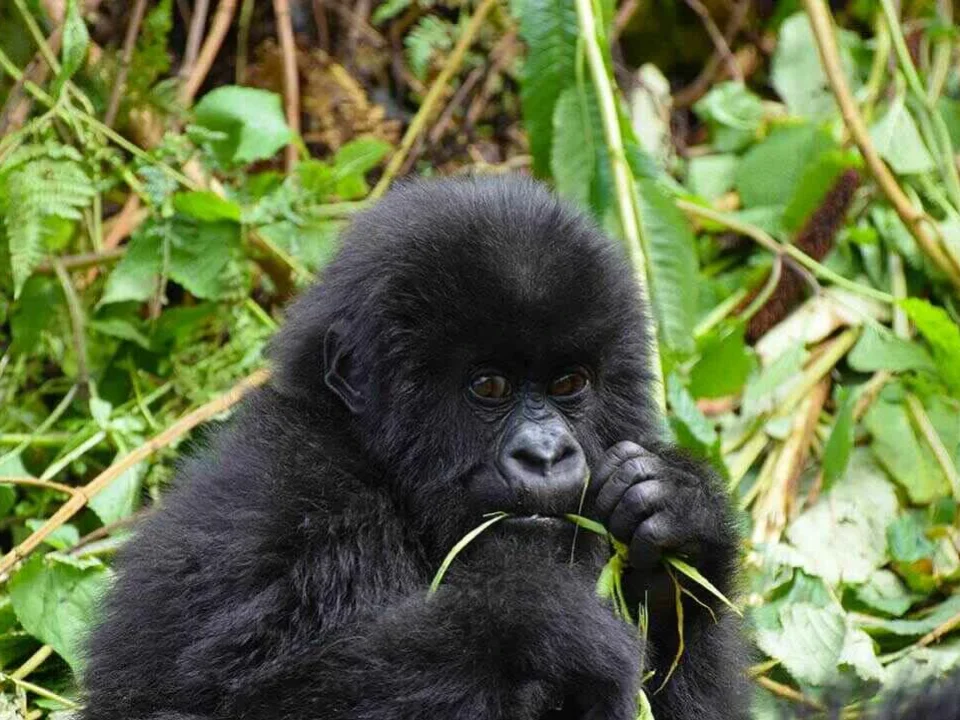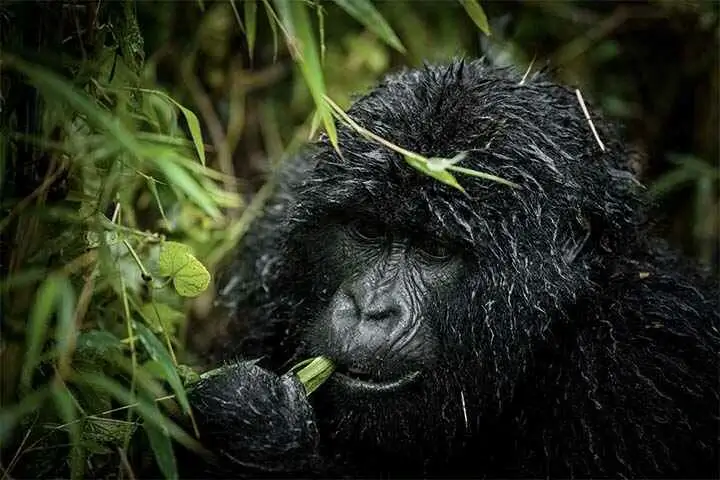
What you need to know about travel permits and visas for the Democratic Republic of Congo
December 9, 2024
Eastern Lowland Gorilla Conservation Efforts in Kahuzi-Biega National Park
December 17, 2024The Democratic Republic of Congo (DRC) is a land of extraordinary beauty, home to lush rainforests, majestic rivers, and unique wildlife. Despite its allure, the country’s safety concerns often raise questions for travelers. This article explores the complexities of traveling safely in the DRC, providing insights into risks, precautions, and how to make the most of your visit while staying secure.
Understanding the security landscape of the DRC
A History of conflict and instability
The DRC has a complex history marked by political instability and conflict, particularly in the eastern provinces. Armed groups, ethnic tensions, and governance challenges have contributed to insecurity in some regions. However, significant portions of the country remain peaceful, offering safe opportunities for tourism under proper guidance.
Regional safety variations
Safety conditions in the DRC vary widely by region. Urban centers like Kinshasa and Lubumbashi are generally safer, though petty crime can occur. The eastern provinces, including North and South Kivu, remain conflict-prone and are usually advised against for non-essential travel. National parks such as Virunga and Kahuzi-Biega have designated safe zones for tourists, ensuring controlled and secure experiences.
Key risks for travelers in the DRC
Armed conflicts in Eastern regions
Parts of the eastern DRC are affected by ongoing conflicts involving armed groups. These areas pose significant risks, including violence and kidnappings, making them unsuitable for tourism. Travelers are advised to consult travel advisories and avoid these regions entirely.
Urban crime and scams
Petty crime, such as pickpocketing and scams targeting foreigners, is common in crowded urban areas. Markets, transportation hubs, and public events can be hotspots for such incidents. Remaining vigilant, avoiding displaying wealth, and staying in reputable accommodations can mitigate these risks.
Health concerns
The DRC has prevalent health risks, including malaria, yellow fever, and cholera. Periodic outbreaks of diseases such as Ebola require travelers to take strict health precautions. Vaccinations, anti-malarial medications, and maintaining good hygiene practices are essential for a safe trip.
Poor infrastructure
Road conditions are often poor, particularly outside major cities, and medical facilities in remote areas are limited. This lack of infrastructure can pose challenges for travelers, especially in emergencies. Reliable transportation and comprehensive travel insurance are critical.
Precautions for a safe trip
Conduct thorough research
Before traveling, review the latest updates on the DRC’s safety situation through trusted sources like government advisories. Understanding the risks and identifying safe areas is crucial for planning your trip.
Choose reputable tour operators
Working with experienced tour operators is one of the best ways to ensure safety. Companies like Exclusive Gorilla Journeys specialize in secure and guided experiences, particularly in national parks and other designated tourist zones.
Stick to designated tourist areas
Kinshasa, Lubumbashi, and specific parts of Goma are generally safer urban destinations. National parks like Virunga and Kahuzi-Biega, though located in regions with historical unrest, maintain strict security measures, ensuring safe access for tourists.
Practice personal safety measures
Simple precautions, such as traveling only during daylight hours, securing belongings, and staying alert in public places, can significantly reduce risks. Awareness of your surroundings is key to avoiding scams and petty theft.
National Parks, safe havens for tourism
Virunga National Park
Virunga is one of the DRC’s crown jewels, attracting visitors with its mountain gorillas and the Nyiragongo volcano. Despite its location in a conflict-affected region, Virunga’s authorities have implemented robust security protocols. Rangers and guides accompany visitors, ensuring safety throughout their visit.
Kahuzi-Biega National Park
Known for its population of Grauer’s gorillas, Kahuzi-Biega is another prime destination. Like Virunga, the park operates within a controlled environment, where tourist safety is a priority. Guided tours allow visitors to experience the park’s unique biodiversity without undue risk.
Emergency support and resources
Embassy assistance
Registering with your country’s embassy upon arrival in the DRC can provide a critical safety net. In emergencies, embassies can assist with legal issues, evacuation, or medical crises. Travelers should ensure they have their embassy’s contact information readily available.
Medical and health support
Healthcare in the DRC is limited, especially outside major cities. Carrying a personal first aid kit and ensuring your travel insurance covers medical evacuation are essential precautions. For serious conditions, international evacuation may be necessary.
Communication tools
Staying connected is vital for safety. Travelers should consider purchasing a local SIM card or using satellite phones in remote areas. Keeping loved ones informed about your whereabouts is also recommended.
Safety tips for women travelers
Women traveling in the DRC should take additional precautions to ensure their safety. Dressing modestly and respecting local cultural norms can help avoid unwanted attention. It is also advisable for women to travel in groups or with trusted operators, particularly in rural or unfamiliar areas.
Solo travel, is it safe?
The DRC is a challenging destination for solo travelers due to its logistical and safety complexities. However, it is not impossible for experienced travelers. Those who choose to travel solo should stick to guided tours, avoid high-risk regions, and maintain constant communication with trusted contacts.
Adventure activities and their safety measures
Gorilla trekking
Gorilla trekking in the DRC is a highly controlled activity. Visitors are always accompanied by trained rangers who ensure safety while navigating the forest. Maintaining a respectful distance from the gorillas and adhering to park rules are critical for both safety and conservation.
Mount Nyiragongo hike
The ascent of Mount Nyiragongo, one of the world’s most active volcanoes, is another adventure in the DRC. This trek requires professional guides and adherence to strict safety protocols. Travelers should be prepared for the challenging terrain and carry appropriate gear.
The role of responsible tourism
Travelers play an essential role in supporting the DRC’s conservation and local communities. Visiting national parks and engaging in eco-tourism contributes to efforts to protect wildlife and improve regional stability. By traveling responsibly, tourists help highlight the DRC’s potential as a world-class destination.
Conclusion
Traveling in the Democratic Republic of Congo requires careful planning and an understanding of the local safety landscape. While challenges exist, the rewards of experiencing the country’s natural beauty and cultural richness make it a worthwhile destination for those prepared to take the necessary precautions.
With proper research, guided tours, and vigilance, a safe and unforgettable journey through the DRC is possible. By choosing the right approach, you can explore the wonders of this remarkable country while ensuring your safety and contributing positively to its development.




